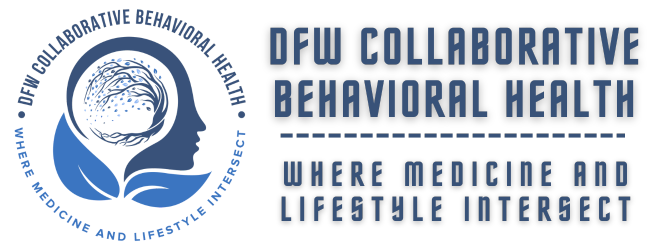What Is Seasonal Affective Disorder (SAD)? Causes, Symptoms & How to Cope
When winter arrives and daylight begins to fade, many people notice their mood and energy start to shift. For some, this change goes beyond a mild case of the “winter blues” and turns into a serious condition known as Seasonal Affective Disorder (SAD), a form of depression that occurs as the seasons change.
At DFW Behavioral Health, we understand that SAD doesn’t just affect one age group. It can impact anyone—from teenagers juggling school stress, to working adults managing busy schedules, to seniors adjusting to lifestyle changes. Recognizing the signs early can make a powerful difference in managing this condition and finding balance again.
Why SAD Is More Common in Winter
SAD most often appears in late fall and winter when sunlight is limited. Sunlight helps regulate our mood, energy, and sleep by keeping the body’s internal clock (circadian rhythm) in sync.
When daylight hours decrease:
• Serotonin levels can drop, leading to lower mood and motivation.
• Melatonin levels rise, causing tiredness and disrupted sleep.
• The body’s circadian rhythm becomes unbalanced, making it harder to stay focused or positive.
People who spend much of their day indoors—whether studying, working, or staying home—tend to be more vulnerable to these effects.
Common Signs and Symptoms of Seasonal Affective Disorder
SAD doesn’t just affect your emotions; it can change how you think, behave, and feel physically. The symptoms may appear gradually and differ depending on age and lifestyle, but often include:
Behavioral Changes
• Withdrawing from family and friends
• Losing interest in hobbies, school, or work
• Feeling unmotivated or struggling to complete tasks
Emotional Symptoms
• Constant sadness or tearfulness
• Heightened irritability or anxiety
• Feelings of hopelessness or emptiness
Physical Symptoms
• Fatigue or excessive sleepiness
• Changes in appetite, often craving carbs or sweets
• Difficulty concentrating or remembering things
Impact on Daily Life
SAD can influence everything from your job or studies to your social connections and health. For older adults, it may intensify loneliness or worsen existing medical issues. For students and professionals, it can lead to decreased performance and difficulty staying engaged.
How SAD Affects Different Age Groups
SAD can appear at any stage of life, but its effects may look different depending on age:
Teens and Young Adults: Often struggle with motivation, mood swings, and reduced focus at school or work.
Working Adults: May notice lower productivity, irritability, and difficulty balancing work-life demands.
Older Adults: Can feel more isolated or disconnected, particularly if mobility or outdoor time is limited.
Recognizing how seasonal depression shows up in your life is the first step toward taking control and feeling better.
Practical Ways to Cope with Seasonal Depression
Managing SAD involves small, intentional changes that can make a big difference in how you feel:
- Spend time in natural light – Get outside during daylight hours, even on cloudy days.
- Try light therapy – A medically approved light box can mimic sunlight and help regulate your body’s rhythm.
- Keep a steady routine – Regular sleep, meals, and exercise support emotional stability.
- Move your body – Physical activity, even a short daily walk, helps release mood-boosting endorphins.
- Seek professional guidance – Talking to a therapist or psychiatrist can help uncover triggers and build effective coping skills.
How DFW Behavioral Health Can Help
At DFW Behavioral Health, we offer compassionate, comprehensive care for individuals of all ages struggling with Seasonal Affective Disorder. Our services include:
• Comprehensive psychiatric evaluations to understand your unique needs
• Medication management when appropriate to relieve symptoms
• Personalized therapy sessions focused on emotional resilience and balance
• Ongoing support and follow-up care to help you maintain progress year-round
Whether you’re a student who’s finding winter overwhelming, a parent struggling with motivation, or a senior facing seasonal loneliness, our team is here to help you regain control and rediscover joy—no matter the season.
Depression is more than sadness. It goes beyond temporary feelings of unhappiness and is not something that can be overcome simply through willpower or positive thinking.
It is not a sign of weakness. Depression is a genuine medical condition that affects the brain and body, requiring care and understanding—not judgment.
Early help makes a difference. If you notice symptoms of depression, reaching out to a healthcare provider as soon as possible can lead to faster recovery.
Women experience depression more frequently. Studies show that women are diagnosed with depression at higher rates than men, often due to biological and social factors.
Untreated depression can persist. Without professional treatment, symptoms can last for weeks, months, or even years, affecting overall well-being.
Treatment works. Most people with clinical depression improve with proper care, whether through therapy, medication, or a combination of both. Noticeable improvement often occurs within a few weeks of starting treatment.
Contact DFW Behavioral Health today to schedule your appointment.
📞 Call (817) 984-8804 or fill out the form below to learn how our experienced mental health team can support you in managing SAD and improving your emotional well-being year-round.



